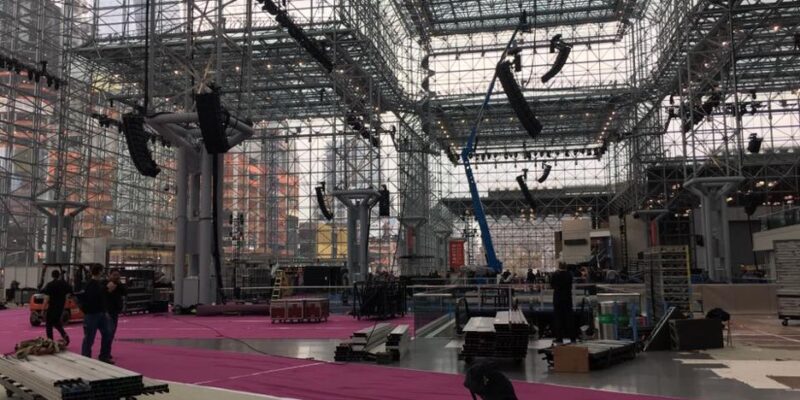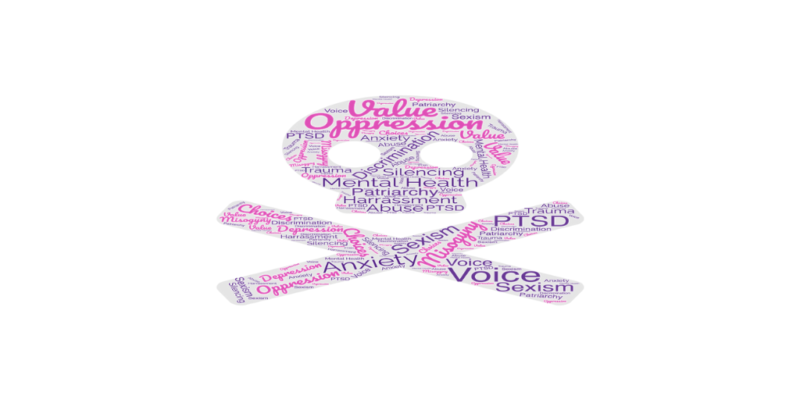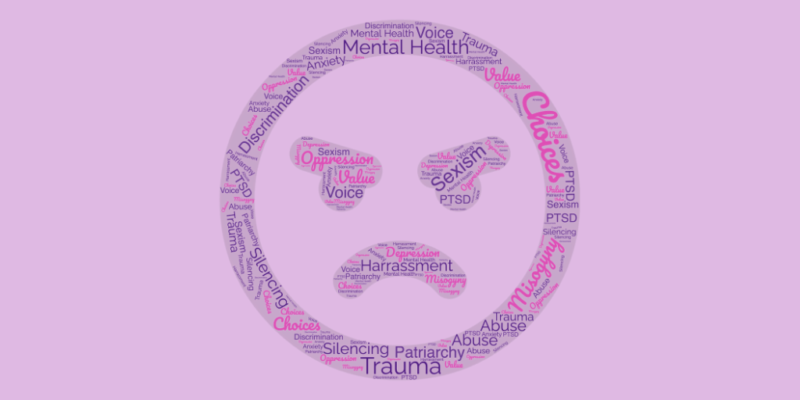By coincidence, or serendipity, I was in New York for business on election day 2016. I spent the evening walking the streets of New York to see Democracy Plaza, Trump Tower and the Peninsula Hotel where Hillary was staying. I was excited to feel that I was in close proximity to a pivotal moment in history, to be so close to the historical moment when the United States would have its first female president. I felt hope for the future and proud of my contributions in support of women’s issues up to that point. Her inauguration would be the beginning of great opportunity for women in the United States. It would be a platform for progress for all of us. And then…
To my surprise, I sobbed as I showered for my meetings and pulled myself together as I headed to my work meeting. The sun came up. Why did this pain feel so deep?
Ironically, my business was to be held at Jacob Javitz Convention Center, the same place that Hillary’s camp spent election day. It was bizarre, to say the least, as I walked through the Hillary camp area to get a coffee as they tore down the audio-visual equipment from the night before. I had thoughts.
How did Hillary feel last night? Her whole adult life built perfectly for this. What pain was felt just last night in this exact place that I stand? She was the most qualified candidate for president, probably ever, and couldn’t win. If she can’t win then what is the actual status of women in this country? And now they are tearing all this stuff down and it is over. They are tearing down Hillary. Just like women are torn down every single day.
I stood for a moment and suddenly felt a powerful energy arise from the pink carpet up through my body. It felt like the collective grief that was being felt by women across the world. I felt the suffering of women past, present and future. I was instantly changed.
I began to cry in the middle of the room. The somber mood, and painful looks as people noticed my reaction told me I was not alone. I found a private spot as I did not want a business client to see me.
What was breaking my heart was a felt sense and knowledge of the unconscious bias against women, and the pain this causes on such a universal level. This pain includes women’s personal safety issues, poverty rates, suppressed voices, withholding of educations, denial of basic rights and the oppression of women’s freedoms around the world. It is why women have to work harder, to be paid less, to be perceived as less competent than their less competent male peers. All this is proven by science. It is a key reason why many women are saying, “I am tired.”
Upon seeing the election results, I worried for the future of women. As it appears Hillary did when she said in her concession speech, “To all the little girls who are watching this. Never doubt that you are valuable and powerful and deserving of every chance and opportunity in the world to pursue and achieve your own dreams.”
I believe many otherwise liberal-leaning people’s justifications for not supporting Hillary were related to unconscious gender bias. When people call Hillary a liar, untrustworthy, not a good leader, cold, power hungry, or just unlikable, or probably most laughable, unqualified, it matches the research regarding views about competent women. The science behind gender bias can explain all these judgments. I was shocked that many people, including women, while proclaiming support of women, did not have knowledge of the specifics of gender bias.
It was on that pink carpet that I knew I was done with my long career as the owner of a successful communications consulting business for the technology industry. My path was not crystal clear, and I remained open as I allowed my intuition and mind to partner and support my choice of direction. A choice I was grateful to have.
I am now a psychotherapist. This educational and professional background is foundational as it supports my continued observations, research, and focus on women. It was in graduate school that my experience deepened, and my direction was more fully formed. I was saddened to observe the misogyny of academia. My research showed me it was not just my university. It was in graduate school that I realized that many people in caregiving fields, including women, even the psychologists, may be more likely to buy into the harmful norms of patriarchy. Traditional, patriarchy-approved career choices for women are those in care giving, valuing communion. Some women may choose these fields as a denial of their agency and personal power.
I was also observing a clear contrast and difference in how women treated other women in this caregiving career field as opposed to the careers that require more agency and owned personal power. It was not what I expected so it sparked my curiosity and continued research. I watched subtle, and not so subtle, corrections in the form of passive aggressive relational aggression encouraging conformity to harmful patriarchal norms related to women’s voice, boundaries and selflessness. The research showed me why. The higher the internalized misogyny, the higher the relational aggression toward other women. This is mostly unconscious, with the resulting behaviors justified by cultural norms.
In the mental health therapy world, I watched women that claimed the communal relational approach to healing demonstrate relational aggression towards women that rejected harmful gender norms. Their actions worked to keep other women in their place, as defined by patriarchy. I saw how the more empowered women were silenced by women-to-woman horizontal aggression. In my research, I saw how this impacted women’s solidarity and support for women with intersectional identities, including racism.
All this led me to my focus and purpose to help women heal from the internalized misogyny caused by oppression. My extensive research led to finding a multidimensional, science-back approach to healing. As a result, I founded Women Informed.
The state of the oppression of women is such that women need to see patriarchy as not just a external force, but also something inside of us that we need to be aware of, unpack and heal. It is a process. We need to heal together in a way that empowers women to step out of our current constraints. Our lives, our actual lives, and also are freedoms in how we live them, are at risk.




